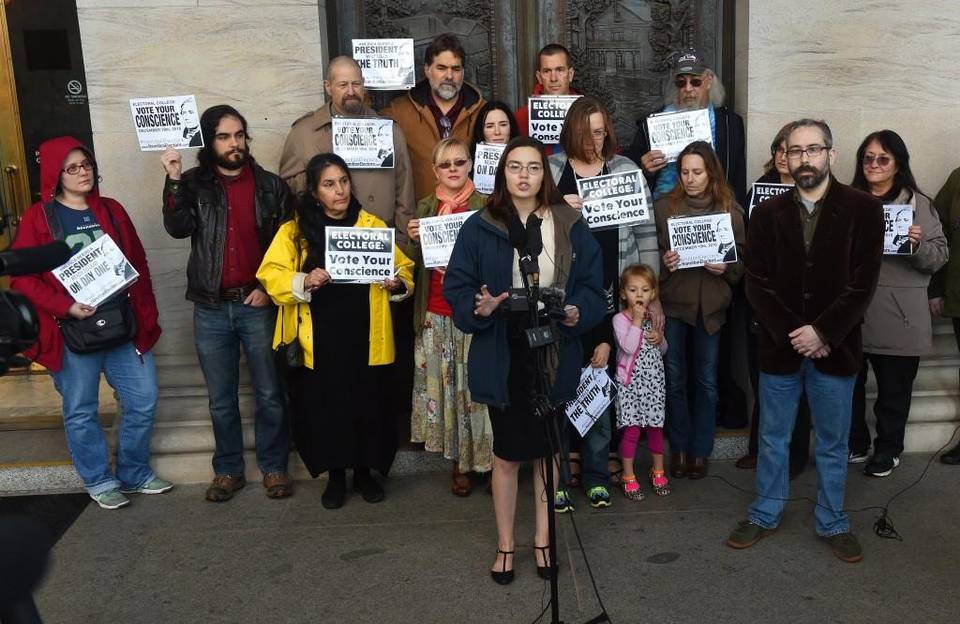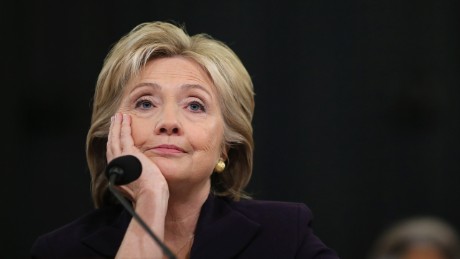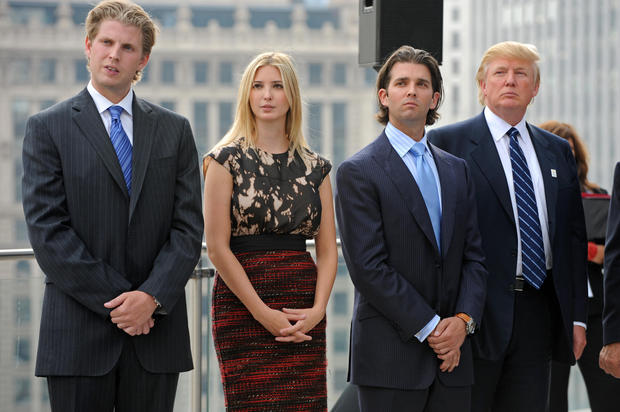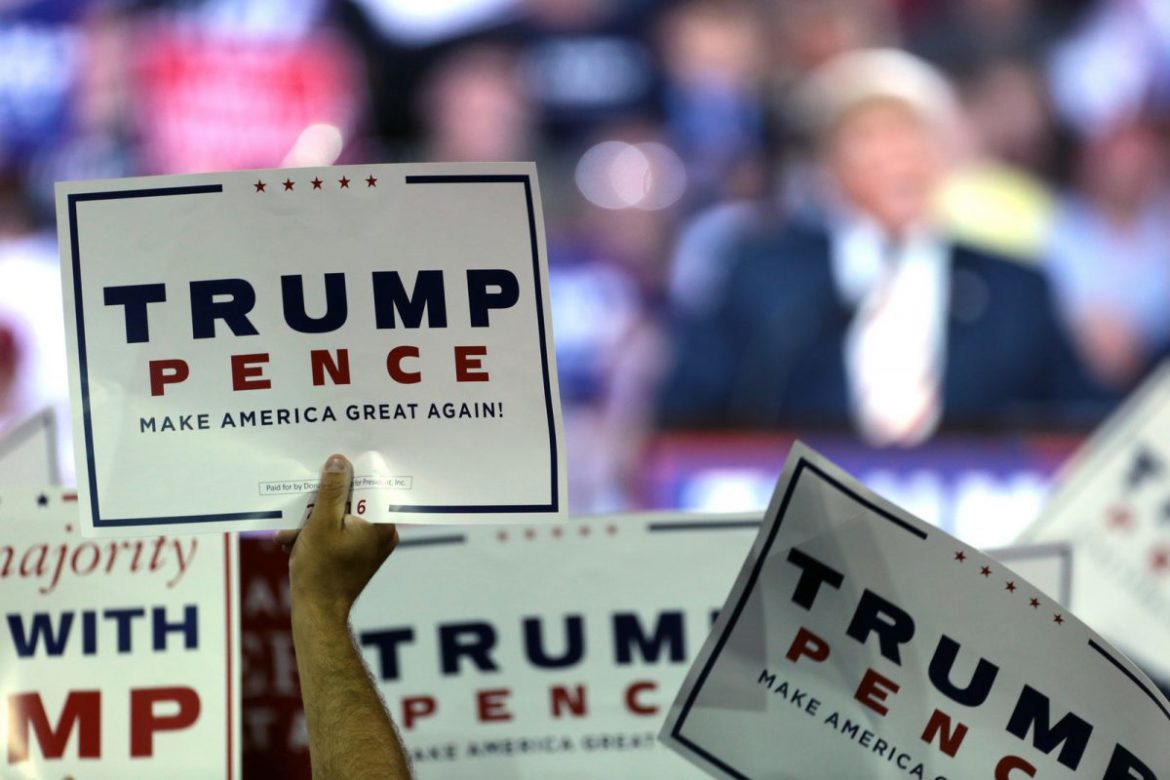Donald Trump’s win has been fraught with controversy from a multitude of different sources. Right up until November 8, we believed that Donald Trump’s camp would be protesting his loss, possibly violently, after months of rhetoric from Mr. Trump insisting that the election was rigged against him (unless he won, of course). Who could have guessed that it would be Democrats crowding the streets to protest? Not the pollsters, who predicted a decisive win for Clinton. Several movements have risen among the left which aim to invalidate or overturn the election results. Green Party candidate Jill Stein raised money to conduct recounts in several rust belt states that were expected to be securely in Clinton’s camp, an effort which fizzled away after few irregularities were discovered. Clinton’s popular vote win has caused a resurgence in calls to abolish the Electoral College that hearken back to the 2000 election, in which George W. Bush won the Electoral College and lost the popular vote to Al Gore. Alternatively, millions are calling upon electors to become faithless electors- or “Hamilton Electors”, depending on how you see the issue- by voting against Donald Trump in the Electoral College vote, which will officially take place on December 19th.

Steve Bloom sbloom@theolympian.com
Eclipsing the protests, recounts, and Electoral College shenanigans is the issue of Russia. During the final months of the election, Democrats voiced increasing concerns regarding Russia’s efforts to manipulate the election in favor of Trump. The Trump camp dismissed these allegations as nothing but rumors. Since the election, the intelligence community announced that President Obama and Senate leaders were briefed by the Department of Homeland Security and CIA, confirming that Russia had indeed attempted to interfere with the election. Russia’s methods included hacking and release of the DNC and John Podesta emails, unleashing armies of paid pro-Trump trolls into social media, and the publishing of numerous viral fake news articles critical of Clinton. This has prompted a backlash by Democrats against fake news on social media.
Ironically, the Trump camp scoffed at the confirmation of Russian involvement as fake news, alarming many Americans and members of the intelligence community, who are deeply concerned about a President-Elect who dismisses findings of the intelligence organizations that he will soon be advised by on critical matters of national security and foreign policy. Trump’s refusal to attend daily intelligence briefings has done little to alleviate these fears. This cavalier attitude towards Russian hacking and cybersecurity can fairly be called hypocritical, given that a principal reason for Clinton’s election loss was that of the Clinton email controversy, a drum which Republicans beat ceaselessly during the election cycle as proof that Clinton’s private email server had compromised national security.

Photo from Politifact
Trump’s cabinet picks have only compounded the controversy, particularly his choice for Secretary of State, Rex Tillerson, a former Exxon oil CEO with longstanding ties to the Kremlin. Tillerson has in the past presided over lucrative oil deals with Russia, some of which Vladimir Putin was personally involved in. Putin awarded Tillerson the Russian Order of Friendship, a high civilian honor. Unsurprisingly, Rex Tillerson has been an outspoken critic of economic sanctions against Russia, which were imposed by the Obama administration in response to Putin’s annexation and occupation of Crimea. While Tillerson and the Trump camp have not yet made any official announcements to this effect, it is not much of a stretch to assume that these sanctions will be lifted by Tillerson in order to allow for oil deals to proceed as they would have prior to the imposition of sanctions. Oil deals are not the only reason for Russia to rejoice in the election results. Trump has, at various points in his campaign, expressed hostility towards NATO, and has indicated that he would be willing to extend the hand of friendship to Russia, going so far as to insert a policy of non-intervention regarding Russia into the GOP platform during the Republican National Convention. Our incoming Secretary of State, and President as well, have interests that align significantly with those of Vladimir Putin, which will drastically alter American foreign policy in Europe.
Rex Tillerson is far from the only eyebrow-raising cabinet pick. Despite Trump’s campaign promise to “drain the swamp” by eliminating moneyed interests and rich elites from Washington, Trump has chosen the most wealthy cabinet in history, a cabinet comprised entirely of billionaires, Washington insiders, and lobbyists. His choices include ACA repeal advocate Tom Price for Secretary of Health and Human Services, former Goldman Sachs executive Steven Mnunchin for Treasury Secretary, Education privatization advocate and donor Betsy DeVos for Department of Education, public housing detractor Ben Carson for HUD, and EPA critic and climate change denialist Scott Pruitt to head the EPA. Opponents of these picks have likened the cabinet to a “wrecking crew,” observing that these choices are more likely to undermine, rather than lead, the organizations which they have been tapped to oversee. The award of cabinet positions to prominent campaign donors is echoed with claims of nepotism and conflicts of interest with regard to the Trump children and Trump organizations. Trump’s children’s role in his cabinet and his businesses is unclear. Trump has, in dynastic fashion, involved his children in meetings with foreign heads of state and the selection of cabinet members, and Trump has now stated on many occasions that his children will continue to head his organizations while also having official roles in the White House. These changes are an about-face from his prior assurances on the campaign trail that he would alleviate conflict of interest concerns by placing his businesses in a blind trust.

Amanda Rivkin/AFP/Getty Images
Trump’s win took everyone by surprise, and his actions since the election have raised more questions about America’s future than they have answered. We now about to enter the year 2017 with only one certainty- that the next four years will bring unprecedented changes to the American political landscape.
 Rachel Eckhardt is an avid political enthusiast, litigation manager, military veteran, and creator of The Illusion of Choice, a blog covering American politics and current events.
Rachel Eckhardt is an avid political enthusiast, litigation manager, military veteran, and creator of The Illusion of Choice, a blog covering American politics and current events.
Follow Rachel on Facebook, or on Twitter at @Rachel_Eckhardt.

